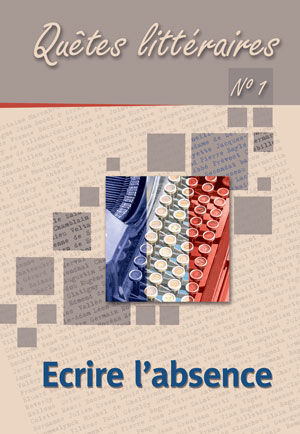Le manque en tant que métaphore de l’écriture : de l’indicible et du mot-absence chez Marguerite Duras
Absence as a metaphor for writing – on the missing word and that which is inexpressible in the works of Marguerite Duras
Author(s): Anna LedwinaSubject(s): Language and Literature Studies, Literary Texts, Studies of Literature, Comparative Study of Literature, French Literature, Theory of Literature
Published by: Katolicki Uniwersytet Lubelski Jana Pawła II, Instytut Filologii Romańskiej & Wydawnictwo Werset
Keywords: absence; fragmentation; elliptical style; silence; inexpressible
Summary/Abstract: Marguerite Duras’s works deal with the problems typical of the literary studies in the second half of the twentieth century: presence and absence, abandoning chronological order of events, and eroticism. This article analyses her literary technique, including text fragmentation and elliptical style. The author searches for appropriate means of expression, often using silence and loneliness in keeping with her vision of absence attributed to women, kept silent by the dominant culture. Omissions in the narrative emphasise the inexpressible, beyond rational. Absence is meaningful, e.g. the missing photograph in The Lover. Absence also implies a desire to change and to write. Duras shows the problem in the context of a hidden image and an act of creation. The missing word alludes to a search of self. The author grasps complexity and diversity of absence. It is part of the theme, style, and text structure, emphasising the limitations of the language and the powerlessness of the protagonist.
Journal: Quêtes littéraires
- Issue Year: 2011
- Issue No: 1
- Page Range: 73-86
- Page Count: 14
- Language: French

